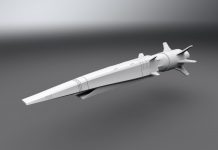
Germany plans to allocate €35 billion ($41 billion) toward space-focused defense initiatives by 2030, aiming to strengthen the country’s technological independence and safeguard its orbital assets as space becomes increasingly militarized, Defense Minister Boris Pistorius announced. He delivered the statement during the third Space Congress of the German industry in Berlin on Thursday.
“Satellite networks are now a vulnerability for modern societies. Any attack on them can cripple entire nations,” Pistorius said, referencing the Russian cyberattack on the ViaSat satellite network prior to the Ukraine invasion, which disrupted the operation of around 6,000 wind turbines in Germany.
Pistorius outlined a strategy to build a robust military space security framework. This includes reinforcing systems against attacks, enhancing orbital surveillance through radars and telescopes, deploying future “guardian satellites,” and establishing Germany’s own military satellite operations center within the Bundeswehr’s Space Command, which was launched in 2021 under the air force.
Highlighting Russia and China as potential space adversaries, Pistorius noted that two Russian Luch-Olymp reconnaissance satellites had been monitoring two Intelsat satellites used by the Bundeswehr. He questioned the “purely peaceful” intentions behind such activities and stressed how Germany has faced near “real threat scenarios.”
“Russia’s conduct, particularly in space, represents a fundamental danger to all of us—a threat we can no longer overlook,” he said.
The 1967 Outer Space Treaty, ratified by 117 countries including all major spacefaring nations, bans placing weapons of mass destruction in orbit and requires that celestial bodies be used solely for peaceful purposes.
Pistorius’ speech also signaled a shift in Germany’s space policy. He suggested that developing offensive space capabilities may be necessary to maintain credible deterrence, marking a move away from the country’s traditionally defensive approach. “We must also be able to deter in space to remain defensible,” he stated.
Germany’s commitment to space defense aligns with broader increases in its military budget. With recent expansions, Germany now ranks fourth globally in defense spending, trailing only the U.S., China, and Russia.





